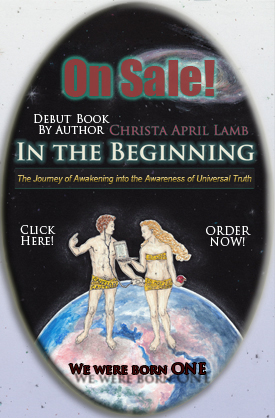Confucianism

Confucianism Symbol: The water symbol
| Quick Facts | | History | | Texts | | Quotes | | Connection to other Religions | | Beyond Facts |
QUICK FACTS
Brief explanation:
Confucianism is a mixture of philosophy. It was taught by Chinese philosopher, Confucius, whose name literally means “Master Kong”, in 6th–5th century BC followed by the Chinese for more than two thousand years. It does not circumscribed to ethics and beliefs only but extends to social, political and moral thoughts. Some say confucianism is not a religion because it does not focus on deities or an afterlife, but the role it has had in shaping chinese culture is equal to that of other religions. The roots of Confucianism are deeply entrenched in China, Taiwan, Korea and Japan. It has around 6.3 million followers.
Followers believe:
o That human nature is inherently good, and that evil is an unnatural condition arising from disharmony. .
o Yin and Yang represent a balance of forces.
o Each man has five relationships, entailing five duties to his fellow man: to his ruler, to his father, to his wife, to his elder brother, and to his friend.
o In placing emphasis on living an ethical life rather than on any spiritual life beyond earthly existence.
o In the presence of the Supreme Ruler in all things, and in Heaven as the ethical principal (law and order), impersonal, yet interested in mankind.
o The purpose of life is to pursue an orderly and reverent existence in accordance with Li (propriety or virtue), so as to become the Superior Man. The superior man’s greatest virtue is benevolent love. Other great virtues are duty, wisdom, truth, and propriety.
o The family is the foremost institution and that religion should support the family and the state.
o Salvation is viewed as realizing one’s natural goodness, which is endowed by heaven through education. The superior man always knows the right and follows his knowledge.
Followers:
There are around 6.3 million followers in the world.
HISTORY
History gathered, collected and provided by the owner of Religion Facts.com
Our sincere thanks for their permission.
Life of Confucius
Confucius was born in 551 BC in the small feudal state of Lu in what is now Shantung Province. Confucius’ ancestors were probably members of the aristocracy who had become virtual poverty-stricken commoners by the time of his birth. His father died when Confucius was only three years old. Instructed first by his mother, Confucius then distinguished himself as a passionate learner in his teens.
Confucius had served in minor government posts managing stables and keeping books for granaries before he married a woman of similar background when he was 19. It is not known who Confucius’ teachers were, but his mastery of the six arts—ritual, music, archery, charioteering, calligraphy, and arithmetic—and his familiarity with the classical traditions, notably poetry and history, enabled him to start a brilliant teaching career in his 30s.
Confucius developed concepts about education, society and government that he hoped to put into practice in a political career. But his loyalty to the king alienated him from the power holders of the time, the large Chi families, and his moral rectitude did not sit well with the king’s inner circle, who enraptured the king with sensuous delights. At 56, when he realized that his superiors were uninterested in his policies, Confucius left the country in an attempt to find another feudal state to which he could render his service. Despite his political frustration he was accompanied by an expanding circle of students during this self-imposed exile of almost 12 years. His reputation as a man of vision and mission spread.
At the age of 67 Confucius returned home to teach and to preserve his cherished classical traditions by writing and editing. He died in 479 BC, at the age of 73. In the Analects (2:4), Confucius is recorded as summarizing his life this way:
At 15 I set my heart on learning; at 30 I firmly took my stand; at 40 I had no delusions; at 50 I knew the Mandate of Heaven; at 60 my ear was attuned; at 70 I followed my heart’s desire without overstepping the boundaries of right.
Also in the Analects, Confucius assists a student who was having difficulty describing him:
Why did you not simply say something to this effect: he is the sort of man who forgets to eat when he engages himself in vigorous pursuit of learning, who is so full of joy that he forgets his worries, and who does not notice that old age is coming on? (7:18)
Confucianism
The story of Confucianism does not really begin with Confucius, nor was Confucius the founder of Confucianism in the same way that Buddha was the founder of Buddhism. Rather, Confucius considered himself a transmitter who consciously tried to retrieve the meaning of the past by breathing vitality into seemingly outmoded rituals. Confucius’ love of antiquity was motivated by his strong desire to understand why certain rituals, such as the ancestral cult, reverence for Heaven, and mourning ceremonies, had survived for centuries. He had faith in the cumulative power of culture. Confucius’ sense of history was so strong that he saw himself as a conservationist responsible for the continuity of the cultural values and the social norms that had worked so well for the civilization of the Chou dynasty.
Mencius, Xunzi, and others sustained Confucianism after Confucius, but it was not influential until Dong Zhongshu emerged in the 2nd century BC. Confucianism was then recognized as the Han state cult (introducing religious elements and sacrifices to Confucius), and the Five Classics (see Texts, below) became the core of education.
In spite of the strong influence of Daoism and Buddhism, Confucian ethics have had the strongest influence on the moral fabric of Chinese society. A revival of Confucian thought in the 11th century produced Neo-Confucianism, a major influence in Korea during the Choson dynasty and in Japan during the Tokugawa period.
In 1530 AD, a Ming emperor reformed the Confucian cult to focus more on Confucius’ teachings than the sage himself (e.g. images of Confucius were replaced with inscribed tablets). The cult of Confucius declined after the founding of the Chinese Republic in 1912, but the influence of Confucianism continues.
TEXTS
The Lun-yü (Analects) are the most revered sacred scripture in the Confucian tradition. It was probably compiled by the second generation of Confucius’ disciples. Based primarily on the Master’s sayings, preserved in both oral and written transmissions, it captures the Confucian spirit in the same way that the Platonic dialogues embody Socratic teachings.
The Confucian Canon achieved its present form in the Sung dynasty under the direction of Chu Hsi (1130-1200). It consists of the Five Classics and the Four Books.
The Five Classics are:
- Shu Ching (Classic of History) – collection of documents and speeches dating from the Later Han Dynasty (23-220 CE)
- Shih Ching (Classic of Odes) – collection of 300 poems and songs from the early Chou Dynasty (1027-402 BC)
- I Ching (Classic of Changes) – collection of texts on divination based on a set of 64 hexagrams that reflect the relationship between Yin and Yang in nature and society
- Ch’un Ching (Spring and Autumn Annals) – extracts from the history of the state of Lu 722-484, said to be compiled by Confucius
- Li Ching (Classic of Rites) – consists of three books on the Li (Rites of Propriety)
The Four Books are:
- Lun Yu (Analects) of Confucius
- Chung Yung (Doctrine of the Mean)
- Ta Hsueh (Great Learning)
- Meng Tzu (Mencius)
Source:Religion Facts.com
QUOTES
Confucius sayings…
1. Everything has its beauty but not everyone sees it.
2. Ignorance is the night of the mind, but a night without moon and star.
3. It does not matter how slowly you go so long as you do not stop.
4. Our greatest glory is not in never falling, but in getting up every time we do.
5. What the superior man seeks is in himself; what the small man seeks is in others.
6. They must often change who would be constant in happiness or wisdom.
7. I am not one who was born in the possession of knowledge; I am one who is fond of antiquity, and earnest in seeking it there.
8. If a man takes no thought about what is distant, he will find sorrow near at hand.
9. Learning without thought is labor lost; thought without learning is perilous.
10. Recompense injury with justice, and recompense kindness with kindness.
11. The cautious seldom err.
12. The superior man cannot be known in little matters, but he may be entrusted with great concerns. The small man may not be entrusted with great concerns, but he may be known in little matters.
13. The superior man is modest in his speech, but exceeds in his actions.
14. Things that are done, it is needless to speak about…things that are past, it is needless to blame.
15. Virtue is not left to stand alone. He who practices it will have neighbors.
16. What you do not want done to yourself, do not do to others.
17. When you know a thing, to hold that you know it; and when you do not know a thing, to allow that you do not know it – this is knowledge.
18. With coarse rice to eat, with water to drink, and my bended arm for a pillow – I have still joy in the midst of these things. Riches and honors acquired by unrighteousness are to me as a floating cloud.
19. Without an acquaintance with the rules of propriety, it is impossible for the character to be established.
20. To go beyond is as wrong as to fall short.
CONNECTION TO OTHER RELIGIONS
Information coming soon.
Back To The Top
BEYOND FACTS
Books on Confucianism:
The Analects Confucius
The Illustrated Encyclopedia of Confucianism
Thinking Through Confucius David L. Hall
Confucian Ethics Kwong-Loi Shun
Socrates, Buddha, Confucius, Jesus Karl Jaspers
Confucius: The Secular as Sacred Herbert Fingarette
Understanding the I Ching Hellmut Wilhelm









